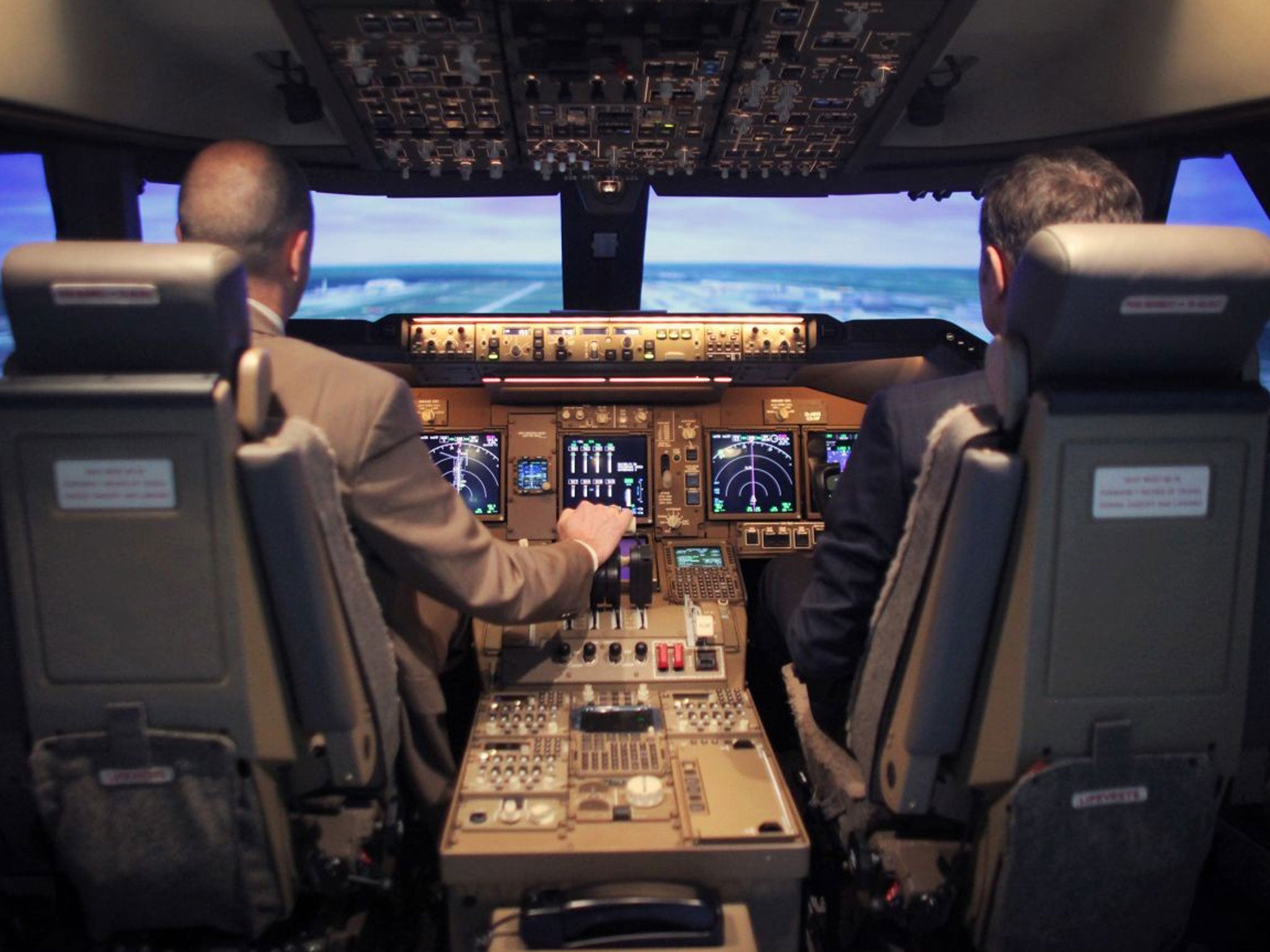Even the pilots pay on some low-cost flights
Unions and novices are complaining that only the rich can afford to keep up their training

Your support helps us to tell the story
From reproductive rights to climate change to Big Tech, The Independent is on the ground when the story is developing. Whether it's investigating the financials of Elon Musk's pro-Trump PAC or producing our latest documentary, 'The A Word', which shines a light on the American women fighting for reproductive rights, we know how important it is to parse out the facts from the messaging.
At such a critical moment in US history, we need reporters on the ground. Your donation allows us to keep sending journalists to speak to both sides of the story.
The Independent is trusted by Americans across the entire political spectrum. And unlike many other quality news outlets, we choose not to lock Americans out of our reporting and analysis with paywalls. We believe quality journalism should be available to everyone, paid for by those who can afford it.
Your support makes all the difference.Pilots' unions and trainee pilots are warning that only the wealthiest, rather than the best, candidates will become pilots because growing numbers of airlines are having cadets "pay to fly". Novice pilots who already have a basic licence are having to pay around £28,000 to achieve the "type rating" qualification needed to fly particular aircraft. Some are also being charged £260 for an interview.
The issue was raised this month by the Dutch pilots' union, VNV, which claimed that low-cost airlines, including Ryanair, are "exploiting" novice pilots. Now the British pilots' union, Balpa, has expressed its concerns about the practice, which it says is becoming more common. "Previous generations of pilots had their type and line training paid for by the airline," explained Richard Toomer, a Balpa spokesman. "The pilot was then bonded to the airline for a period of years, so that the costs of the training had to be repaid only if the pilot left during this period.
"However, many of today's trainee pilots, already debt-laden from paying around £80,000 for their basic licence, must then fund their own type rating and line training. There is growing concern about wider repercussions, including industrial relations, engagement, health, welfare, safety and quality of working life," he added.
CAE, a training company currently contracted to provide training for Ryanair, has charged an "assessment fee" of £260 to interview pilots for selection. This year, training in the Ryanair type-rating programme cost up to €28,500 (£24,000) plus VAT – according to an advert posted online.
One pilot with experience of training for Ryanair, who spoke on condition of anonymity, said: "They say that it is a cost, not a price, but they make money from it. They try to sell training regardless of the opportunities... the more pilots there are, the more money they make. These pilots aren't necessarily the best, but the ones that can afford it."
Evert van Zwol, chairman of the interim council of the Ryanair Pilot Group – which is not recognised by the airline – says: "We have a very strong feeling the total charges are higher than the actual costs.
"It's probably not illegal, but is it something we want to endorse as a society? I don't think it's right to have pilots pay all the costs." He added that, in addition, Ryanair pilots are mostly self-employed and get fewer hours in winter months.
A spokesman for easyJet announced earlier this month that it will now underwrite trainees' loans, offering better terms and financial advice. "For the early years... your family are supporting you as it is expensive to train," he said. "But you quickly earn a significant salary and the early sacrifice pays off. Because we are a growing airline, our guys can become captains within six or seven years, with a minimum pay of £120,000."
Robin Kiely, a spokesman for Ryanair, said: "Since Ryanair only recruits fully qualified pilots, no Ryanair pilots 'pay to fly'. These pilot union claims are simply untrue."
Philip Landau, an employment lawyer at Landau Zeffertt Weir, said: "There's no obligation on an employer to provide the payment for your training qualification. Many do, but it's largely a matter of contract between employer and employee. If there is a custom and practice for paying for training, they could be bound by this as an implied term."
Meanwhile, paying pilots as self-employed operators may soon end. A spokesman for HM Revenue & Customs said: "Employment status is never a matter of personal choice and is always dictated by the specific facts. When the employment relationship does not accurately reflect the underlying reality of the relationship... we intervene."
Join our commenting forum
Join thought-provoking conversations, follow other Independent readers and see their replies
Comments